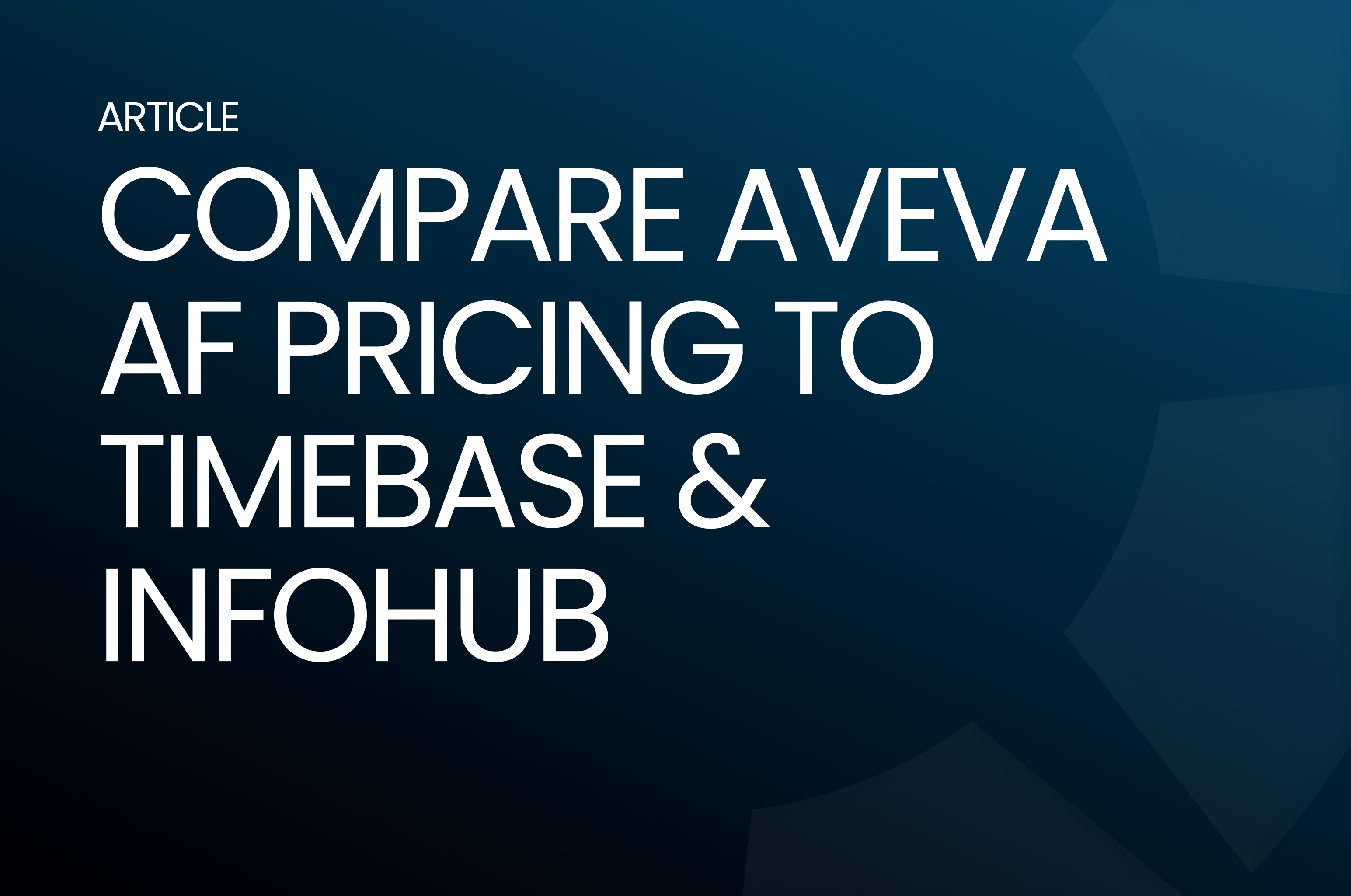Data has become a commodity. However, there is still a great deal of untapped potential in data sources sitting around in many facilities. So it's little wonder that most of the challenges facing industry today are data-driven.
This blog shares tips, how-to's and insights into leveraging your data so that you can get the most value out of it.
Hundreds of process indicators need tracking in the water industry. In addition, facilities now benefit from cheaper sensors and the advent of IoT. The result is that you can find a sizeable array of devices at any one site.
A particular issue in the water industry is the ailing infrastructure. Legacy and propriety systems abound when it comes to software and data management. These systems then face the challenge of connecting to all those disparate sensors and data sources to elicit meaningful and trustworthy information.
Modern solutions like Flow can extract reliable information from old and newer technologies. Here are three ways that Flow can help.
Flow can integrate with disparate data sources often found in utility plants - including the human data source.
Water utilities are interested in:
- quality sampling
- physical testing
- and chemical analysis
- and much more
In addition, Flow can help you align with DataOps principles and reap the rewards from building that foundation.

Flow understands your time-series utilities data and highlights where you should increase efficiencies and reduce waste - chemical dosing compliance being one of the most critical.

With Flow, your utilities engineers can build the reports they have always wanted. Out the box. No scripting. And no coding knowledge is required.
With Flow, you can pivot and customize important KPIs like chlorine and turbidity levels.

So, how can Flow help your facility? Learn what Flow can do for your water facility. Contact us at information@flow-software.com, or download Flow for free!

Many plants rely on PI Asset Framework for structure and KPIs, but its tight coupling to the PI ecosystem limits scale and drives decisions through tag-based licensing. A Timebase Historian plus InfoHub architecture keeps the strengths of AF while removing those constraints. Learn how affordable and performant this solution can be.

The Time-in-State Metric (TISM) provides a structured approach to evaluating process stability and performance by measuring the duration a system remains in an operational state. By implementing TISM with Flow Software, organizations gain structured, high-confidence insights into process efficiency, variability, and improvement opportunities.

The need for robust Industrial Data Management (IDM) solutions has never been greater. Whether integrating operational technology (OT) with enterprise IT systems, generating the KPIs that drive the business, or supporting advanced analytics, manufacturers require a platform that is flexible, scalable, and delivers ROI in days not years.